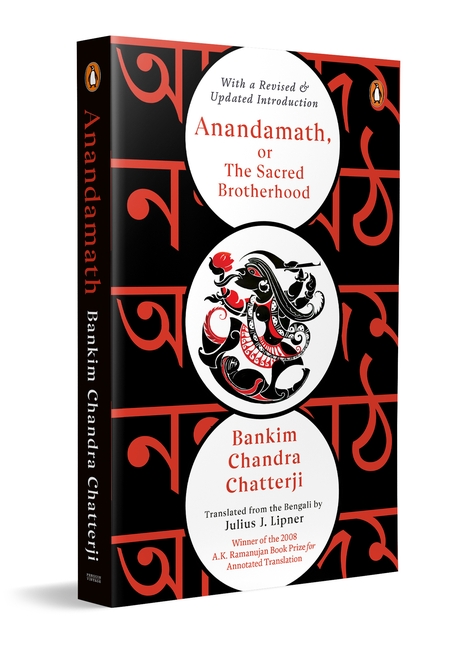
© 2020 Penguin India

This is a translation of a historically important Bengali novel.
Published in 1882, Chatterji’s Anandamath helped create the atmosphere and the symbolism for the nationalist movement leading to Indian independence in 1947. It contains the famous hymn Vande Mataram (“I revere the Mother”), which has become India’s official National Song. Set in Bengal at the time of the famine of 1770, the novel reflects tensions and oppositions within Indian culture between Hindus and Muslims, ruler and ruled, indigenous people and foreign overlords, jungle and town, Aryan and non-Aryan, celibacy and sexuality. It is both a political and a religious work. By recreating the past of Bengal, Chatterji hoped to create a new present that involved a new interpretation of the past. Julius Lipner not only provides the first complete and satisfactory English translation of this important work, but supplies an extensive Introduction contextualizing the novel and its cultural and political history. Also included are notes offering the Bengali or Sanskrit terms for certain words, as well as explanatory notes for the specialized lay reader or scholar.
Imprint: Vintage Books
Published: Nov/2024
ISBN: 9780143466758
Length : 352 Pages
MRP : ₹499.00
Imprint: Penguin Audio
Published:
ISBN:
Imprint: Vintage Books
Published: Nov/2024
ISBN:
Length : 352 Pages
MRP : ₹499.00
This is a translation of a historically important Bengali novel.
Published in 1882, Chatterji’s Anandamath helped create the atmosphere and the symbolism for the nationalist movement leading to Indian independence in 1947. It contains the famous hymn Vande Mataram (“I revere the Mother”), which has become India’s official National Song. Set in Bengal at the time of the famine of 1770, the novel reflects tensions and oppositions within Indian culture between Hindus and Muslims, ruler and ruled, indigenous people and foreign overlords, jungle and town, Aryan and non-Aryan, celibacy and sexuality. It is both a political and a religious work. By recreating the past of Bengal, Chatterji hoped to create a new present that involved a new interpretation of the past. Julius Lipner not only provides the first complete and satisfactory English translation of this important work, but supplies an extensive Introduction contextualizing the novel and its cultural and political history. Also included are notes offering the Bengali or Sanskrit terms for certain words, as well as explanatory notes for the specialized lay reader or scholar.
Bankimchandra Chatterji (1838-94) is called the father of the Bengali novel and considered by many as its greatest novelist. He was a key figure of the Bengal Renaissance and closely associated with the Indian independence movement. Durgeshnandini (The Chieftain’s Daughter) was his first novel in Bengali and the first complete novel in Indian literature.
Julius J. Lipner is Professor in Hinduism and the Comparative Study of Religion and Chairman of the Faculty Board of Divinity at the University of Cambridge. He is the author of several books, including Hindus: Their Religious Beliefs and Practices and Brahmabandhab Upadhyay: The Life and Thought of a Revolutionary.